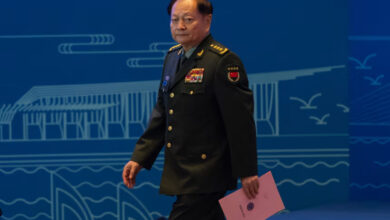Today marks 59 years since the July Revolution, an event that has defined the last half century of Egyptian history. Coming on the heels of another revolution, one popular in nature, this anniversary invites more reflection than celebration.
On 23 July 1952, the Free Officers movement, led by a young colonel Gamal Abdel Nasser, overthrew the monarchy and established a presidential republic. Nasser's era left Egypt with a mixed inheritance. Many Egyptians admire the former president for standing up to foreign powers, expanding Egypt’s regional role, and promoting social and economic justice at home. Others blame him for a legacy of political repression that continues to be the source of Egypt’s ills today.
Although few would consider Egypt to have been a military dictatorship for long, the July Revolution did usher in decades of strong military influence over political life that have yet to come to an end. By the mid-1950s, Nasser and the Free Officers began to champion a social and economic agenda — including land redistribution, nationalization and investment in public services — aimed at state-led development and the provision of social welfare. It was partly on this basis that they claimed to be the true representatives of the Egyptian people and their revolutionary aspirations.
The Free Officers often spoke on behalf of the people, while gradually restricting their political freedoms. The regime’s corporatist policies brought much of Egyptian civil society — trade unions, parties, student organizations, newspapers — under the wing of the state. Basic instruments of democracy, like the constitution and parliament, were used to rally mass support for the regime, rather than express popular sovereignty. Political parties were banned and dissidents were imprisoned and sometimes executed. An organized state discourse, propagated through speeches, films, and school curricula, portrayed the military regime as the sole guardian of the ideals of the revolution and the Egyptian people.
Under the consecutive presidencies of Anwar Sadat and Hosni Mubarak, Nasser’s social and economic policies were gradually jettisoned in favor of economic liberalization and private-sector growth. But many of the the political hallmarks of the Free Officers’ regime remained — a large civilian bureaucracy, a coercive security apparatus, and a powerful military establishment. Under Mubarak, the military’s role in politics became less visible, as an inflated security apparatus penetrated almost every aspect of public life. But the military remained an anchor of the regime.
Since the ouster of Mubarak on 11 February, the Supreme Council of the Armed Forces (SCAF) has promised to protect the revolution and meet the people’s demands. Though some progress has been made towards holding Mubarak-era officials accountable and restructuring state institutions, there are many discouraging signs. In March, the military council approved a draconian law banning strikes that “harm the economy and impede the work of public institutions”. Military trials of civilians take place in secrecy. Essam Sharaf's cabinet has not been given sufficient powers to fulfill its revolutionary mandate. Independent trade unions are yet to be legally permitted, while the state-run Egyptian Federation of Trade Unions lives on. And many SCAF decisions, like the recent one not to allow international monitors to supervise Egypt’s upcoming parliamentary elections, are made behind closed doors. These policies signal the military’s continued reluctance to cede power and foster an environment where independent political activity and expression can thrive.
Meanwhile, through ominous military communiques and rare televised statements by SCAF officials, Egyptians are constantly told to have faith that the military council is working to achieve the best interests of the people. When popular pressure mounts, council members warn against conspiratorial plots to undermine the unity of the people and the army. Put simply, the SCAF would like Egyptians to believe they must trust the military council, not hold it accountable.
The 25 January revolution was a rejection of this paternalistic logic that has long governed the military's relationship to Egyptian politics. The uprising’s principal slogan, "The People Demand the Fall of the Regime", was an assertion that political legitimacy lay with the people who confer it upon their rulers, not the other way around. The army can help thrust the revolution forward by working with all political forces to meet popular demands for democracy and social justice. But this will require a candid acceptance that, in the course of the 2011 uprising, Egyptians have affirmed their need for political representatives, not patriarchs.
In the wake of the 25 January Revolution, Egypt is beginning to overcome decades of authoritarian rule, in which the military has played no small role. The SCAF has pledged a transition to civilian rule, though there are fears it may manipulate the new constitution to protect the army’s privileges and grant it license to intervene in civilian politics. As we move forward in building the kind of political order we want to live in, it’s time to rethink the role Egypt’s army should play in a civilian democracy.
Let this anniversary of the July Revolution be an occasion for critical reflection. Rather than celebrate the glories of the past, let’s hold out hope for the people’s new-found ability to make revolution without relying on custodians to protect their gains.




